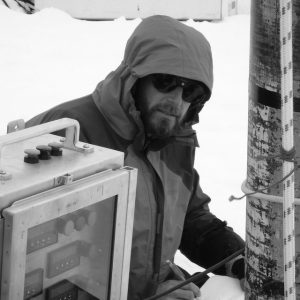 ESS Professor and Chair Eric Steig, a University of Washington glaciologist and geochemist, recently was awarded a prestigious Guggenheim Fellowship, an honor given to 188 “culture creators” working across 52 disciplines. Fellows were nominated and chosen based on prior career achievements and exceptional promise, according to the foundation.
ESS Professor and Chair Eric Steig, a University of Washington glaciologist and geochemist, recently was awarded a prestigious Guggenheim Fellowship, an honor given to 188 “culture creators” working across 52 disciplines. Fellows were nominated and chosen based on prior career achievements and exceptional promise, according to the foundation.
Steig, professor and chair of the UW Department of Earth and Space Sciences, is one of two fellows this year to receive support from the John Simon Guggenheim Memorial Foundation’s Climate Change Fund, which was established by a previous Guggenheim fellow to address critical climate change issues. The fellowship will allow Steig, who develops ice core records to understand the history and future of polar ice sheets, to pursue his work free from the constraints of the usual academic life of a professor.
The College of the Environment recently asked Steig about this fellowship.
Tell us about your research and what questions you’ve been exploring lately.
One of the key questions facing scientists who study our climate system is how quickly sea level will rise over the next century and beyond. The greatest source of uncertainty in predictions of future sea level rise is the potential for mass loss from the Antarctic ice sheet. We know that Antarctica is losing ice mostly because warm water is eroding ice shelves — the floating part of glaciers when they enter the sea — but we don’t really know why there is more melting happening now than before.
There are a number of different ideas about why, exactly, this is occurring, and I’ve written a bunch of papers on this, as have my students and colleagues. But at the moment, there is no clear path forward for distinguishing among various competing hypotheses, and each one has rather different implications for the mechanisms of recent Antarctic ice sheet change, and therefore for the response of the ice sheet in the future.